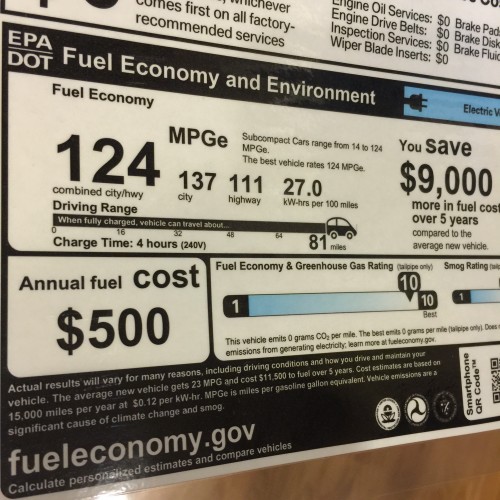The hot story in the news this week is Volkswagen’s reported brazen cheating in diesel engine emissions testing. This brought to mind a host of similar occurrences, from Samsung/HTC cheating at benchmarks to alleged cheating in SPC enterprise storage performance testing. Cynics say we should just assume we’re being cheated, but is this a world in which we want to live?

The Volkswagen situation is really remarkable in its brazenness. Pretty much every diesel passenger vehicle sold in the USA uses urea injection to tame nitrogen oxide and meet the US EPA’s very-strict emissions standards. But Volkswagen somehow managed to meet the standards without urea in their popular 2.0 liter TDI engine. Automotive geeks always wondered if there was some technical trick Volkswagen had developed to pull this off. Turns out, there was!
As the old saying goes, “your mileage may vary.” By now, most car buyers know they won’t match the “Monroney Sticker” fuel economy estimates, yet these still prove valuable when cross-shopping vehicles.1 The same holds true for Energy Star ratings, lightbulb lumen/wattage numbers, and nutritional information.
Your mileage will vary, but most consumers assume that those benchmarks were obtained on a level playing field. What kind of company would develop as sophisticated a cheat as Volkswagen is alleged to have created? What does this say about the company and the state of mind of those who created it? As Planet Money points out, sometimes people do bad things in business contexts.
But that doesn’t mean we should forgive them or resign ourselves to being cheated. As an industry and as a society, we should strive for fairness always. And we should punish those who abuse that trust, even though it’s likely to happen again. And because of that, we always have to be watchful!
- If you’re not a car geek like me, you would not believe the shenanigans that go on behind the scenes with these numbers! ↩
Not that I’d defend VW on this one, but these diesel vehicles probably shouldn’t exist anyway. Take a look at the sheer number of inordinately expensive, and exotic parts it takes to even pass an emissions test on a diesel.
http://www.caranddriver.com/features/prime-cuts-diesel-exhaust-treatment-systems-exposed-feature
On top of all that, I have to add half an IED worth of urea between oil changes? Nah. It’s not worth it.
We considered a diesel Passat but are very happy with the all-electric BMW i3 instead. That’s the window sticker above – it really does get that kind of MPG if you compare the cost of electricity to the cost of gas. And it’s super simple so it should be dead reliable.
What “sheer number of inordinately expensive, and exotic parts” are you taking about?
Diesel engines have a number of use cases that make them more economic then gasoline engines and less polluting too. Just because a diesel vehicle doesn’t fit your use case in no way means they “probably shouldn’t exist”.